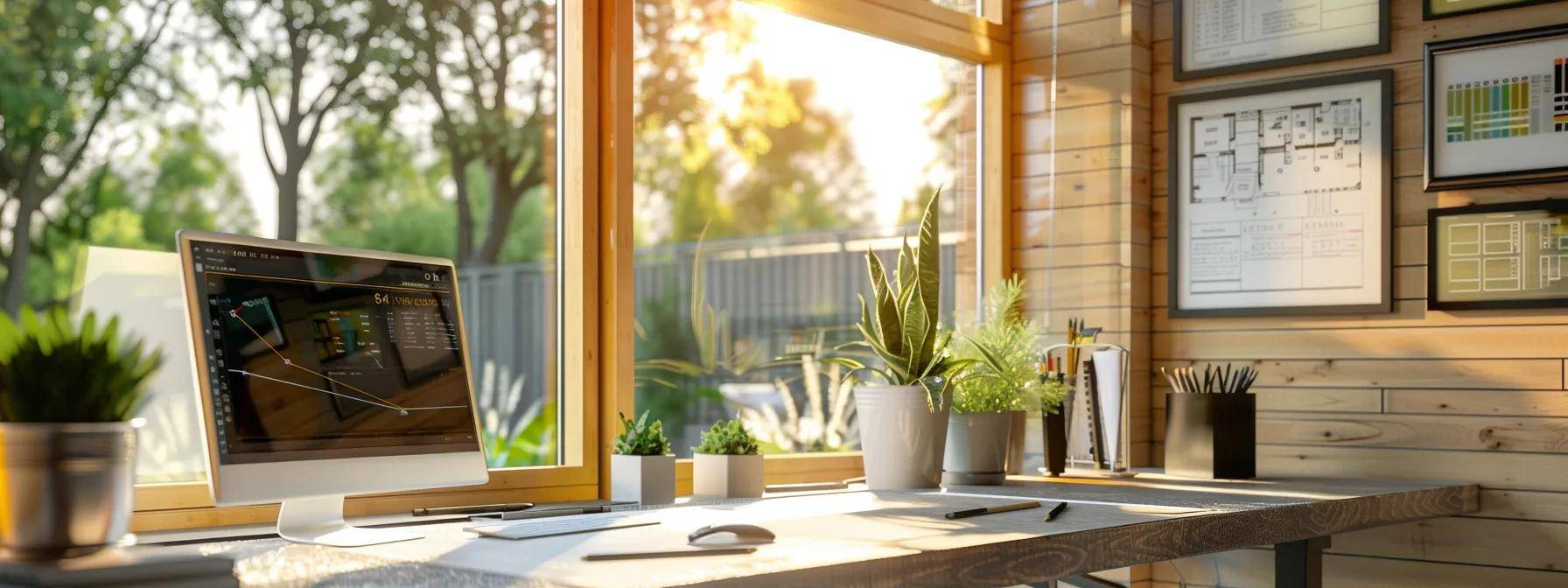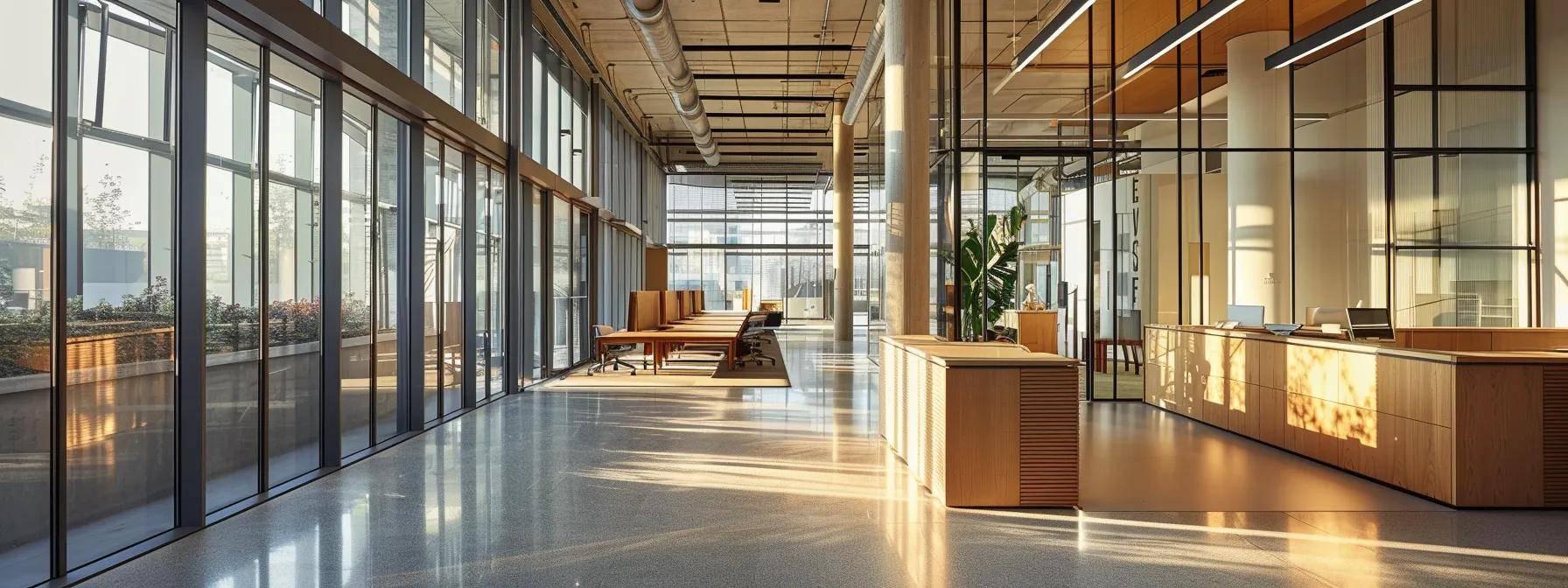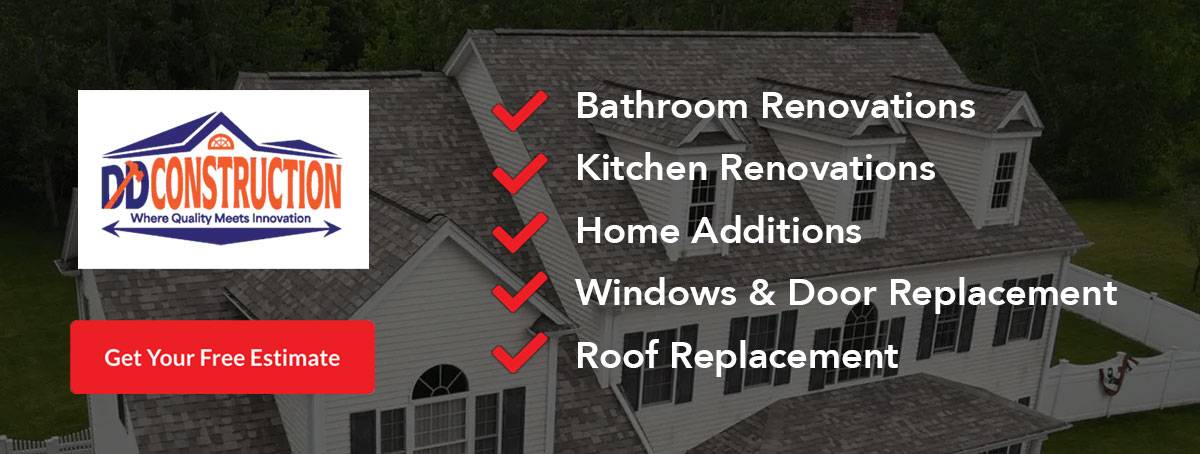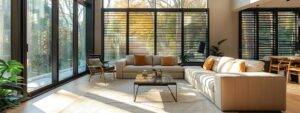Homeowners in Massachusetts continually face the decision of whether to invest in window replacement or opt for window repair. This decision is influenced by factors such as cost, durability, energy efficiency, and local climate conditions. In Massachusetts, where harsh winters and humid summers put additional stress on windows, choosing the right solution is critical to maintaining comfort, lowering energy bills, and preserving the home’s aesthetic appeal. This article explores the differences between window replacement and repair, details how Massachusetts’ unique climate and building codes affect these choices, and discusses overall cost differences while providing guidance to homeowners on which option may be more appropriate based on their specific situation. By analyzing key elements such as material types, installation processes, environmental impact, and customer satisfaction, this comprehensive guide offers actionable advice for homeowners and highlights the expertise of Massachusetts window solutions providers, like dd construction, who focus on high-quality home improvements.
For many homeowners, damaged or aging windows significantly affect indoor comfort and heating costs. With seasonal temperature extremes common in Massachusetts, every window must stand up to the frozen cold and steamy summers. Outdated windows or repairs that do not address underlying issues can lead to increased energy bills and further deterioration. Thus, understanding the differences between full window replacement and targeted repair is crucial when planning home improvement projects. This article provides in-depth comparisons, effective decision-making frameworks, and illustrative data to guide Massachusetts homeowners in choosing the most cost-effective, durable, and efficient window solution.
What Are the Key Differences Between Window Replacement and Repair?
The key differences between window replacement and repair involve the extent of the work, cost implications, energy efficiency improvements, and long-term performance. Window replacement entails completely removing the existing windows and installing new units that meet the latest industry standards for insulation and durability. Repair, on the other hand, focuses on fixing specific issues such as a broken pane, faulty seals, or hardware malfunctions without replacing the entire window system. Replacement often means a significant boost in energy efficiency when older windows fail to meet modern standards, while repairs are typically less expensive in the short term but may not address underlying issues that cause recurring problems.
How Does Window Replacement Work?
Window replacement involves removing old windows and their frames and installing new, modern windows suited for Massachusetts’ climate. The process typically starts with an assessment of the current windows, checking for energy loss, structural integrity, and aesthetic appeal. After evaluation, new windows are chosen based on material, energy efficiency ratings, and style. Professional crews then remove the old windows, repair any surrounding structural issues, and install the new units with precision. This method ensures improved insulation, enhanced appearance, and compliance with the latest building codes. Replacement windows often come with warranties covering both the product and the installation, offering long-term reassurance to homeowners. Proper installation is vital to avoid air leakage and water damage, both of which can compromise the efficiency and longevity of the new windows. Overall, window replacement provides a comprehensive modern solution that can dramatically increase both energy efficiency and property value.
What Does Window Repair Involve?
Window repair focuses on addressing specific problems without completely replacing the unit. This process typically involves repairing broken glass, resealing gaps, replacing defective hardware, or restoring aesthetics through refinishing. Repairs are generally performed when only a portion of the window system is damaged and the overall structure is still sound. For example, a single cracked pane or air leakage caused by deteriorated weatherstripping can be effectively remedied with repair methods. Skilled technicians inspect the unit, diagnose issues, and apply targeted fixes to restore functionality and energy efficiency. Although repair is cost-effective and less disruptive than full replacement, it may only be a temporary solution if the window has reached the end of its functional life. Repair can extend the longevity of high-quality windows that are valued for historic or aesthetic reasons. However, if recurring issues persist even after multiple repairs, full replacement might eventually become more economical.
When Is Replacement More Effective Than Repair?
Replacement becomes more effective when windows are outdated, extensively damaged, or consistently require maintenance. Replacement is generally favored when energy efficiency, structural integrity, and modern aesthetics are priorities. Windows that have been in place for many years may lack the insulation capabilities of new models, which can drive up heating and cooling costs. Additionally, if multiple components such as the sash, frame, and seals are failing, repairing one component after another may become a never-ending cycle. New windows offer significant performance improvements, including enhanced thermal performance that can reduce energy usage by up to 30%, better sound insulation, and improved curb appeal. Moreover, replacement provides an opportunity to integrate advanced technologies such as low-emissivity (Low-E) glass coatings and inert gas fills. Homeowners looking for long-term savings and increased property value may find that, despite the higher initial cost, replacement pays off over time—especially in a state with strict building codes like Massachusetts.
What Are the Benefits of Repairing Windows?
Repairing windows in Massachusetts offers several distinct benefits, particularly when the existing windows remain structurally sound. The foremost advantage is cost savings; repairs are generally less expensive than a full replacement. By repairing specific issues such as minor cracks, damaged weatherstripping, or faulty hardware, homeowners can significantly extend the life of their windows without bearing the high costs associated with replacement. Additionally, window repair preserves the historical or aesthetic integrity of older homes, which is especially important in historic neighborhoods. Moreover, repairs generate less waste and reduce environmental impact compared to complete replacement. Finally, repairs can often be completed quickly with minimal disruption, making them an ideal option for homeowners on tight schedules or budgets.
How Do Massachusetts Climate and Building Codes Affect Window Choices?

Massachusetts experiences a diverse climate marked by bitterly cold winters and humid summers, conditions that place unique demands on window durability and performance. The seasonal extremes require windows that can insulate effectively against the cold while managing heat and moisture during the warmer months. Additionally, Massachusetts’ stringent building codes mandate minimum energy efficiency levels and structural performance requirements. These local regulations ensure that new installations can withstand harsh weather while contributing to energy savings and reducing greenhouse gas emissions. Consequently, homeowners must choose window materials—such as durable vinyl, properly insulated wood, or resilient fiberglass—that can meet both aesthetic and functional needs while complying with both the climate and regulatory standards.
What Climate Factors Influence Window Durability in Massachusetts?
The weather in Massachusetts significantly affects window durability. Extreme temperature fluctuations—ranging from subzero winters to high-humidity summers—demand robust materials and construction. Cold temperatures can cause frames to contract, while warm, moist conditions may make them expand or warp. In addition, heavy snowfall, ice, and rain increase the risk of water infiltration if seals are inadequate. In coastal areas near Boston and Cape Cod, strong winds add further stress. These factors necessitate selecting materials with superior thermal properties and resilient weatherstripping. Energy-efficient windows, particularly those with double or triple-pane glass, are recommended for their enhanced insulation and durability under variable conditions. Manufacturers must design windows that can conform to both industry standards and local building codes, ensuring long-term performance and efficiency.
How Do Local Building Codes Impact Window Replacement and Repair?
Local building codes in Massachusetts play a critical role by setting strict standards for energy efficiency, air leakage rates, and structural performance. For example, new replacement windows must often meet specific Energy Star ratings, while repairs are required to maintain or improve a window’s performance without compromising safety. These codes influence the choice of materials, installation methods, and even the type of glass used, ensuring that both replaced and repaired windows contribute positively to a home’s overall energy performance. Compliance is essential—not only to avoid penalties but also to maximize the benefits of modern window technology in reducing energy costs and enhancing indoor comfort.
Why Choose Materials Suited for Massachusetts Weather?
Selecting window materials that can withstand Massachusetts’ harsh weather conditions is crucial for achieving long-lasting performance and energy efficiency. Materials such as vinyl, fiberglass, and specially treated wood are popular choices because they offer high resistance to frost, thermal expansion, and humidity. Vinyl is favored for its low maintenance, excellent insulation properties, and resistance to rot. Fiberglass windows offer superior strength and minimal thermal distortion, while treated wood can provide a classic aesthetic if properly maintained. Modern windows often incorporate advanced features such as Low-E coatings and inert gas fills, further enhancing energy efficiency. Choosing the right materials helps reduce the frequency of repairs and replacements, ensuring comfort and compliance with state building codes over the long term.
What Are the Cost Differences Between Window Replacement and Repair in Massachusetts?
The cost differences between window replacement and repair are notable and depend on various factors such as the extent of work required, quality of the windows, and installation fees. In Massachusetts, due to strict building codes and the premium on energy efficiency, window replacement generally comes with a higher upfront cost. However, this investment may yield long-term savings by improving insulation, reducing energy bills, and increasing property value. In contrast, window repairs typically involve a lower initial expense, targeting only specific problems rather than the entire system. That said, repeated repairs over time can cumulatively increase costs, potentially rivaling the expense of a full replacement. Homeowners should carefully evaluate the current condition of their windows, anticipated repair frequency, and potential energy savings when deciding which option is more cost-effective over time.
How Much Does Window Replacement Typically Cost?
The cost of window replacement in Massachusetts varies according to the window type, the materials selected, and the level of customization required. For basic installations of replacement windows, homeowners may expect to pay between $500 and $1,000 per window. More decorative or energy-efficient models can run several hundred dollars higher per unit. Additional costs may include labor, installation fees, and any necessary structural modifications, such as repairs to the window frame or interior trim adjustments. Despite the higher upfront expense, modern replacement windows offer benefits such as improved energy efficiency—which can reduce heating and cooling expenses by 20% to 30%—increased resale value, and long-term warranty coverage that reinforces the overall investment.
What Are the Average Costs for Window Repair Services?
Window repair is generally less expensive than full replacement. Repairs typically cost between $100 and $300 per window, depending on the nature of the issue. Simple fixes, such as replacing a cracked pane or resealing gaps, usually fall on the lower end of the price range. More complex issues, such as repairing warped frames or addressing water damage, may be more costly. Although the initial repair cost is lower, repeated repairs on aging windows may eventually outpace the investment required for a full replacement. Therefore, it is important for homeowners to weigh the immediate cost savings against the potential need for future repairs and increased energy costs.
How Does Transparent Pricing Benefit Massachusetts Homeowners?
Transparent pricing is a key benefit for Massachusetts homeowners considering window services. Clear, upfront pricing allows homeowners to budget effectively and compare quotes from different service providers without the stress of unexpected hidden fees. In Massachusetts, where strict regulatory standards and high labor costs can sometimes lead to additional charges during installation, transparency in pricing builds trust and helps homeowners make informed decisions. When companies break down the cost of materials, labor, and available warranties, it ensures that homeowners understand the total investment required, aligning expenses with long-term home improvement goals.
Which Window Types Are Best for Replacement or Repair?

The choice of window types plays a crucial role in determining whether a window is better suited for replacement or repair in Massachusetts. Common materials include vinyl, wood, and fiberglass—each offering distinct advantages in energy efficiency, maintenance requirements, and aesthetic appeal. Vinyl windows are known for their affordability, low maintenance, and excellent thermal insulation. Wood windows provide a classic look with natural insulation properties, though they require regular upkeep. Fiberglass windows are highly durable, resistant to extreme temperature fluctuations, and offer outstanding energy efficiency. The decision largely depends on factors such as the age of the windows, specific repair needs, and long-term energy and aesthetic goals for the home.
What Are the Pros and Cons of Vinyl, Wood, and Fiberglass Windows?
- Vinyl Windows Pros: Generally the most affordable and low-maintenance option; excellent insulation properties reduce energy costs; highly resistant to moisture and humidity. Cons: May expand slightly under extreme temperatures; aesthetic options are more limited compared to wood.
- Wood Windows Pros: Offer natural insulation and a timeless aesthetic; provide extensive customization and enhance curb appeal, especially in historic properties. Cons: Require regular maintenance (painting and sealing) to prevent rot, moisture damage, and warping in harsh climates.
- Fiberglass Windows Pros: Extremely durable and resistant to temperature fluctuations; offer high energy efficiency and minimal maintenance; can mimic the appearance of wood while providing greater longevity. Cons: Generally have a higher upfront cost; style options may be more limited compared to traditional wood.
How Do Different Window Types Affect Repair Options?
The material of a window influences its repair options. Vinyl windows, due to their low-maintenance nature, typically require only occasional fixes such as resealing or replacement of hardware. Wood windows, while aesthetically attractive, may demand more frequent repairs because they are prone to rot and insect damage; many homeowners choose to repair them to preserve a historic look. Fiberglass windows are very durable, and repair needs are usually minimal, though when repairs are required, they can be more complex and expensive. In each case, it is important that any repair work does not compromise the window’s energy efficiency or overall performance.
Which Window Types Offer the Best Energy Efficiency?
Energy efficiency is a major concern for homeowners in Massachusetts. Generally, vinyl and fiberglass windows offer the best energy efficiency thanks to their design features, such as multi-chambered frames and compatibility with Low-E coatings and inert gas fills. Energy-efficient vinyl windows can substantially reduce heat loss during the cold winter months, while fiberglass windows maintain consistent performance even under extreme conditions. Although wood windows provide natural insulation, they often require additional treatment and precise installation to match the performance of modern alternatives. Homeowners may also benefit from federal and state incentives, rebates, and tax credits available for energy-efficient window upgrades.
How Can You Decide Between Repair and Replacement for Your Windows?
Deciding between window repair and replacement in Massachusetts involves a careful evaluation of several factors, including the extent of the damage, the age of the windows, overall cost implications, and long-term energy efficiency goals. Homeowners should assess whether the damage is isolated and can be remedied with targeted repairs or if it is extensive enough to justify a full replacement. When multiple windows show recurring issues or if past repairs have failed to resolve the problems, replacement may be the more effective solution. Additionally, the potential energy savings from modern, energy-efficient windows can sometimes outweigh the higher upfront cost of replacement. A professional consultation, complete with a detailed inspection and cost-benefit analysis, can help in making a well-informed decision.
What Signs Indicate Your Windows Need Replacement?
Homeowners should watch for several warning signs that suggest replacement is necessary. Persistent drafts, fogging between glass panes, difficulty in opening or closing the windows, and visible damage such as warping or rotting all indicate that a window has exceeded its functional lifespan. If repair costs start to accumulate with increasing frequency, it may be more economical to invest in replacement. Additionally, noticeable spikes in energy bills during extreme temperatures suggest inefficient windows that could benefit from modern upgrades, improving both comfort and home value.
When Is Repair a Viable Option?
Repair is a viable option when the window’s main structure remains intact and only minor issues are present. If problems such as worn weatherstripping, a cracked pane, or defective hardware are isolated, repairing the window can restore functionality and energy efficiency at a lower cost than full replacement. This option is particularly attractive when the window is of high quality and still within its expected lifespan, preserving both its aesthetic and historical value. Nonetheless, if repairs become too frequent, replacement may eventually become necessary to ensure long-term performance.
How Does Window Age Influence Your Choice?
The age of the windows is a critical factor in the decision-making process. Older windows, especially those installed before the advent of modern energy-efficient methods, often lack the insulation and performance features needed to cope with Massachusetts’ weather extremes. As windows get older, wear and tear accumulate, making repeated repairs more frequent and costly. In general, when windows reach an age of 20 to 30 years, replacement is usually recommended to achieve better insulation and reduced energy costs. Even if repairs can temporarily restore functionality, the underlying inefficiencies may render continued repairs unsustainable over time.
What Role Does Customer Satisfaction Play in Choosing Services?
Customer satisfaction is paramount when deciding between repair and replacement. Homeowners often look for service providers with transparent pricing, robust warranties, and a solid reputation for quality workmanship. Companies like DD Construction in Massachusetts emphasize high-quality craftsmanship and lasting improvements. If repair services fail to meet expectations or issues recur after repairs, many homeowners conclude that replacement—despite a higher upfront cost—offers superior long-term value in terms of performance, energy efficiency, and overall comfort.
What Are the Environmental Impacts of Window Replacement vs Repair?

The environmental impacts of window replacement and repair extend beyond mere financial considerations. Modern replacement windows, with their energy-efficient designs, can significantly lower a home’s energy consumption and reduce greenhouse gas emissions over time. Energy-efficient windows help decrease reliance on heating and cooling systems, thereby reducing energy waste and a home’s overall carbon footprint. However, the process of replacing windows may generate waste from discarded materials. By contrast, window repair minimizes waste by extending the life of existing units, reducing the need for new materials and lowering environmental disruption. Homeowners who are particularly concerned with sustainability may lean toward repair if their windows are in generally good condition; whereas, in the long run, full replacement may offer greater environmental benefits by significantly improving energy efficiency.
How Does Repair Reduce Waste and Environmental Footprint?
Repairing windows has a direct positive impact on the environment by extending the service life of existing units. This approach minimizes the need for manufacturing new windows, thereby reducing carbon emissions associated with production, shipping, and installation. Repair projects also tend to produce less construction debris and fewer pollutants compared to full replacement. Moreover, by preserving the existing windows—especially in historic homes—repair contributes to a more sustainable use of resources and reduces overall material consumption.
What Are the Environmental Benefits of Modern Replacement Windows?
Modern replacement windows offer significant environmental advantages through improved energy efficiency and durability. These windows are engineered with multiple insulating layers, low-emissivity glass coatings, and inert gas fills that substantially reduce heat transfer. As a result, they lower overall energy consumption, reduce greenhouse gas emissions, and contribute to a reduced carbon footprint. Although the installation process may create some waste, the long-term energy savings, along with available rebates and tax credits through programs like Mass Save, ensure that replacement windows are a sustainable investment in energy efficiency.
Why Choose Massachusetts Window Solutions for Your Window Needs?
Massachusetts window solutions providers, such as DD Construction, offer local expertise that addresses the specific challenges posed by the region’s climate and building codes. Local professionals understand the delicate balance between preserving older homes and introducing modern, energy-efficient features. By providing comprehensive services—including initial inspections, transparent pricing, environmentally friendly practices, and strong customer satisfaction guarantees—these providers deliver tailored solutions that ensure long-term performance and enhanced curb appeal. Their robust warranties, maintenance plans, and financing options further ease the burden of large-scale home improvement projects.
How Does Local Expertise Improve Window Service Quality?
Local expertise in window services is critical to achieving high service quality. Professionals familiar with Massachusetts’ weather patterns and regulatory requirements can offer customized solutions that ensure proper sealing, durability, and energy efficiency. Their deep local knowledge aids in navigating permitting processes and compliance issues, leading to installations that are both robust and reliable. Moreover, local service providers have a vested interest in their community’s reputation, meaning they typically prioritize transparent pricing and exceptional customer service.
What Comprehensive Services Does MWS Offer?
Companies like MWS offer a comprehensive range of services to meet every window need—from full replacements to minor repairs and ongoing maintenance. Their services include thorough initial inspections, precise measurements, energy efficiency audits, and the installation of various window types suited for Massachusetts’ climate. These professionals also provide expert consultation to help homeowners decide the best approach based on current window conditions, energy goals, and budget constraints. In addition, they integrate eco-friendly practices such as recycling old materials and using sustainable products, ensuring that every project contributes to both improved performance and environmental sustainability.
How Does MWS Ensure Customer Satisfaction and Transparent Pricing?
Customer satisfaction and transparency are top priorities for leading Massachusetts window service providers. MWS and similar companies deliver clear, upfront pricing that details labor, materials, and any additional services to avoid unexpected costs. They back their work with extensive warranties covering both installation and product performance, ensuring prompt resolution of any issues. Regular follow-ups, detailed service reports, and consistent communication all contribute to a positive customer experience—factors essential for maintaining a strong reputation in the competitive home improvement market.
Detailed Lists
Below are several detailed lists outlining various aspects of window replacement and repair services in Massachusetts, including benefits, factors to consider, and common repair issues.
List 1: Key Benefits of Window Replacement
- Improved Energy Efficiency – Reduced Heating and Cooling Costs Modern replacement windows offer advanced insulation features, such as double or triple glazing and Low-E coatings, that significantly reduce energy losses.
- Enhanced Aesthetic Appeal – Modern Style and Customization Replacement windows allow homeowners to choose from a variety of styles, finishes, and colors, thereby increasing curb appeal and potentially boosting property values.
- Increased Home Value – A Smart Investment for Resale Upgraded, energy-efficient windows are attractive to prospective buyers, signaling a well-maintained and updated home.
- Noise Reduction – Better Sound Insulation Modern windows are designed to minimize external noise, contributing to a quieter indoor environment.
- Stronger Structural Integrity – Improved Weather Resistance New windows are built to withstand extreme weather, reducing the risk of damage from heavy winds, rain, or snow.
- Enhanced Security – Modern Locking Systems Replacement windows often feature advanced locking mechanisms and robust materials that deter potential break-ins.
- Long-Term Savings – Lower Maintenance Costs Over Time Although more costly upfront, replacement windows typically require less maintenance over the years, lowering overall repair costs.
List 2: Common Issues Requiring Window Repair
- Broken or Cracked Glass – Immediate Air and Water Leakage Cracked panes can compromise insulation and safety, making prompt repair essential.
- Damaged Weatherstripping – Reduced Energy Efficiency Worn weatherstripping allows drafts, which increase heating bills and reduce comfort.
- Faulty Hardware – Difficulty in Opening or Closing Windows Malfunctioning handles, latches, or hinges can hinder proper operation and compromise security.
- Water Infiltration – Signs of Rot and Mold Growth Leaks around window frames can cause significant water damage, leading to rot and mold.
- Warped Frames – Poor Insulation and Structural Compromise Over time, frames may warp due to moisture and temperature changes, necessitating repairs.
- Seal Failures – Condensation Between Panes Failed seals can result in condensation, reducing glass clarity and energy efficiency.
- Cosmetic Damage – Degradation of Aesthetic Appeal Scratches, peeling finishes, or discoloration may signal the need for repair to preserve overall integrity.
List 3: Factors to Consider When Deciding Between Repair and Replacement
- Current Window Age – Older Windows May Benefit More From Replacement Windows that have been in use for decades may lack modern energy-saving features.
- Extent of Damage – Isolated Issues May Be Suited to Repair Minor cracks or damaged seals can often be efficiently remedied with repairs.
- Energy Efficiency Goals – Upgrading to Modern, Energy-Efficient Models New windows may justify the higher cost through significant energy savings.
- Cost Analysis – Budgeting for Immediate Repair vs. Long-Term Savings A detailed comparison of repair frequency versus long-term energy savings is essential.
- Aesthetic Considerations – Maintaining Historical Integrity vs. Modern Look In historic homes, preserving original windows might be desirable, whereas modern homes can benefit from a current look.
- Environmental Impact – Repair Minimizes Waste, Replacement Offers Long-Term Efficiency Repair reduces waste, but replacement offers improved energy efficiency over time.
- Availability of Rebates – Programs Like Mass Save Can Offset Replacement Costs Incentive programs may provide rebates and tax credits that influence the decision in favor of replacement.
List 4: Advantages of Hiring Professional Window Services in Massachusetts
- Expert Assessment – Accurate Diagnosis of Window Issues Professionals conduct thorough inspections to pinpoint underlying problems.
- Quality Installation – Adherence to Building Codes and Industry Standards Certified installers ensure that windows are properly fitted and compliant with local regulations.
- Transparent Pricing – Clear, Upfront Cost Estimates Reputable companies provide detailed pricing to help homeowners avoid unexpected fees.
- Enhanced Warranty Coverage – Long-Term Protection for Repairs or Replacements Professional services often include warranties that safeguard against future issues.
- Time Efficiency – Speedy Service With Minimal Disruption Experienced technicians work quickly to reduce homeowner inconvenience.
- Local Expertise – Familiarity With Massachusetts Climate and Regulations Local companies understand state-specific challenges and tailor solutions accordingly.
- Customer Support – Ongoing Maintenance and Responsive Service Reliable companies offer follow-up services to promptly address any future issues.
Comprehensive Comparison Table
The following table presents a comparison between window replacement and repair in Massachusetts based on key factors.
| Factor | Window Replacement | Window Repair | Energy Efficiency Improvement (%) | Average Cost per Unit |
|---|---|---|---|---|
| Extent of Work | Complete removal and installation | Fixing specific issues only | Replacement: 25–30%; Repair: 5–10% | Replacement: $500–$1,200; Repair: $100–$300 |
| Long-Term Durability | High; uses modern materials and technology | Variable; depends on current condition | High | Replacement provides long-term savings |
| Aesthetic Upgrade | Significant; modern look enhances curb appeal | Minimal; retains original look | Replacement enhances appearance | Replacement increases property value |
| Maintenance | Low future maintenance required | May require recurring fixes | Replacement minimizes future repairs | Lower maintenance with new windows |
| Environmental Impact | Initial waste generation; long-term energy savings | Minimal waste; may not significantly improve efficiency | Replacement reduces energy usage | Repair has lower upfront impact |
| Installation Disruption | Higher disruption; extensive work | Limited disruption; localized work | Replacement requires professional installation | Lower with repair |
| Warranty/Support | Comprehensive warranties on product and installation | Limited; dependent on repair scope | Replacement comes with warranties | Replacement offers comprehensive support |
Before deciding, homeowners should analyze these factors along with their long-term goals and current window conditions. A professional consultation can provide personalized recommendations and help weigh the benefits of each option.
Detailed Comparison Table of Window Materials
| Material | Durability | Energy Efficiency | Maintenance Requirement | Repair Feasibility | Cost Range per Unit | Suitability for Massachusetts Climate |
|---|---|---|---|---|---|---|
| Vinyl | High | Excellent | Low | Easy, minimal | $300–$800 | High; resists moisture and rot |
| Wood | Moderate to High | Good | High; requires regular upkeep | Moderate; may need repeated repairs | $400–$1,200 | Suitable; offers classic aesthetics but requires extra care |
| Fiberglass | Very High | Excellent | Low | Difficult; specialized repair may be needed | $500–$1,000 | Very high; withstands extreme conditions |
| Aluminum | Moderate | Fair | Low | Easy, but less energy efficient | $250–$700 | Moderate; not as energy efficient |
| Composite | High | Excellent | Moderate | Moderate; depends on material composition | $500–$1,500 | Excellent; combines benefits of multiple materials |
| Steel | Very High | Moderate | Low | Difficult; costly repairs | $600–$1,500 | Suitable for industrial settings, less common residentially |
| Hybrid | Very High | Excellent | Low | Difficult; requires expert service | $700–$1,800 | Excellent; engineered for optimal performance under variable conditions |
This table provides an overview of how different window materials perform under the rigorous demands of Massachusetts’ climate and regulations.
Frequently Asked Questions
Q: What factors should Massachusetts homeowners consider when deciding between window repair and replacement? A: Homeowners should assess the extent of window damage, the age of the windows, potential energy savings, and repair costs. Consideration of the home’s architectural style and local building code compliance is also important. Professional assessments help determine if full replacement or targeted repairs are more appropriate.
Q: How do modern replacement windows improve energy efficiency compared to older models? A: Modern replacement windows feature insulated frames, double or triple glazing, and Low-E glass coatings that significantly reduce heat transfer and drafts, leading to energy savings of up to 30% on heating and cooling costs.
Q: Can window repair provide long-term benefits, or is replacement always a better investment? A: Window repair can be beneficial if the damage is isolated and the overall structure is sound. However, if recurring issues persist or the windows are outdated, replacement may be a more cost-effective and energy-efficient solution over the long term.
Q: How do Massachusetts building codes impact window installation and repair? A: Building codes in Massachusetts mandate stringent standards for energy efficiency, air leakage, and structural integrity. These standards ensure that new installations meet modern benchmarks and that repairs do not compromise performance or safety.
Q: What role do programs like Mass Save play in offsetting the costs of window replacement? A: Programs like Mass Save offer financial incentives, rebates, and tax credits for upgrading to energy-efficient windows, thereby reducing the upfront cost and promoting sustainable home improvements.
Q: Are vinyl windows the best choice for the Massachusetts climate? A: Vinyl windows are popular due to their durability, excellent insulation, and low maintenance. However, the choice depends on aesthetics, budget, and specific performance needs, so alternatives like fiberglass or wood may be considered as well.
Q: How quickly can window repairs be completed compared to replacements, and what is the typical disruption to household life? A: Repairs usually take only a few hours and cause minimal disruption, whereas replacements can take one to two days, particularly if structural modifications are required.





